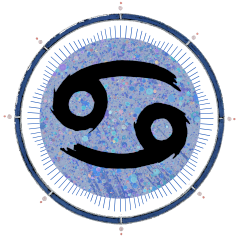Dear Fellow Traveler:
Mercury stations retrograde today. Can you feel it? If you have the patience, it’s one of those deep-thinking moments. If you don’t, you may be encountering significant frustration — so practice patience, especially in any form of communication. Prudent astrological counsel is to move gently, slowly, carefully; do so day by day and hour by hour, if you must. The retrograde lasts through Sept. 12, with the peak coming on Sept. 3 when Mercury makes its interior conjunction to the Sun. That moment is when Mercury passes directly between the Earth and the Sun and the retrograde begins to wind down.

This transit has many unusual features. Most of them involve Mercury playing off of a group of minor plants in Sagittarius, as well as a point called the Great Attractor. In other words, although Mercury is retrograde in Virgo, it’s picking up strong influence from Sagittarius.
Many of these contacts involve family history. For example, the retrograde is happening with Mercury square Quaoar, a planet that’s about how we are born into our family of origin and just start picking up the patterns that everyone else is acting out unconsciously, or nonchalantly. As we know, some of those patterns are difficult to see, much less do anything about. The current astrology should be doing a nice job of making us aware of what some of that material is about. Quaoar about describes our personal creation myth — something we may not think about too often. That is the story, deep in your mind, about how you came to Earth, where you came from, and what your existence means.
Along the way, Mercury will also square Pholus, which is a centaur planet (the second ever, after Chiron) that helps us trace things back three generations. Pholus is especially helpful for deducing the origins of addiction patterns, and anything that has been transmitted down the generational line to a point of origin we can actually document. Pholus also comes with the description “small cause, big effect.” We can apply this to Mercury two ways — one is that even a few words or a single idea can have a big influence, beyond what we are imagining. And we can remember that seemingly small things can have a profound influence on our minds, and on our state of mind.
And Mercury will square Ixion, a minor planet in the vicinity of Pluto, which describes the amoral aspect of human nature — the one that doesn’t care about right and wrong. I sum this planet up as “anyone is capable of anything.” We all live with a lot of this, and we may even fear this quality in ourselves. Often when we encounter it, it comes wrapped, that is, disguised, in religious garb. And as Mercury makes its square to Ixion, we will get a look at our own use of religion as a rationale for, well, for anything we use it for.

So this is a Mercury retrograde that reaches into the depths of both spirituality and psychology, if you can even separate those two things.
For those who have a knack or curiosity about the technical side of astrology, check out this ephemeris that Tracy Delaney at Serennu.com created. It covers the whole span of Mercury in Virgo, which spans from late July through early October. This is Mercury in Virgo, making aspects to many influential, deep and at times strange planets. Take it easy on yourself, and gently unhook those points of obsession that keep you trapped in the very mental patterns you want to let go of.
As we move through the Mercury station on Friday, which will ripple into the weekend, we reach a turning point in the history of our current era: Saturn makes its third and final square to Pluto on Saturday. Saturn has been making an astonishing number of aspects the past two years, and this is the last of them for a while: the final of three Saturn-Pluto squares, shortly after we passed the last of five Saturn-Uranus oppositions. If life has been stressful and (putting it politely) eventful, this is a picture of why: the structure of reality, and of our minds, is being rearranged. It’s a turning point, though besides observing yourself, being compassionate and riding it out, there is not that much you can do to influence the flow of events. You can, however, bear in mind that integrity is something that begins and ends with you.

At this juncture, overnight Wednesday to Thursday the United States withdrew its last full combat brigade from Iraq. There are still several thousand combat troops there, who are scheduled to leave by the end of the month; many will be redeployed to Afghanistan. Another 50,000 will stay through 2011, according to the Obama administration’s plan, to do bureaucratic jobs and to advise the Iraqi security forces.
Though this is a bitter victory for those who opposed the war, it is indeed a turning point; I covered it at the time, and you can find that link here on our daily edition, with the relevant charts and an excellent conversation. Of course with Mercury about to be retrograde, I don’t blame anyone for doubting that this is the real thing — that it’s another faux “mission accomplished.” I guess we shall see. It’s important to remember that wars that took years to plan (badly) and build up to don’t end in a day; even Vietnam was a two-year drawdown after the official end of fighting in the mid-1970s.
Speaking of Mercury, this week’s essay is an item I’ve been holding for a few months, waiting for the right moment. It’s in interview format, focusing on the relationship between astrology and technology. The interview was intended for one of the big online gaming magazines — a non-astrological audience. So it will give you a taste of how I speak to people who are totally outside the field.
One last thing — a couple of weeks ago, I promised that I would take a week off. Someone wrote to me and said, “I hadn’t noticed that you did that.” No, I haven’t, and it’s really time. I’ve been running my astrological writing engine a bit hot for the past season and I need to cool down. So, we will distribute the monthly horoscope for September on Tuesday, then I plan to skip the edition of Friday, Aug. 27. Monthly horoscopes are done. Leo birthday audio is done. Capricorn belated birthday audio is done — the last in our series of belated 2010 reports. Mercury retrograde audio is just about done — I will definitely appreciate and enjoy some time away from `my amazing, challenging, actually meaningful job. We will send out reminders on the days of canceled issues.
Till next time — for Planet Waves, this is
![]()
Metaprogramming With Astrology
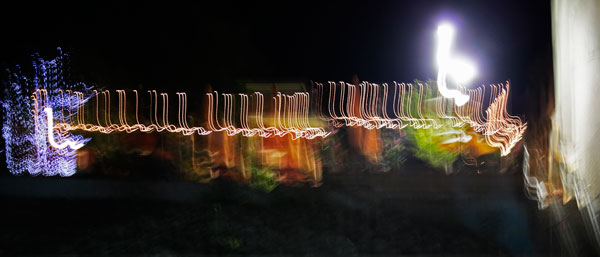
Interview with Eric Francis by Savas Abadsidis. Eric Francis is a writer and astrologer who has contributed to the Internet since the mid-1990s — for his profession, since the beginning. He came to astrology from environmental investigative reporting, so he has a background in technology, exposing fraud and how invisible things can affect the whole world. He answered these questions in late March 2010 while in Portland, Maine.
How does the virtual world relate to the world that you function in as an astrologer? Are there analogies?
First, a bit about that function: I’m one of the people who writes the horoscopes that appear in the backs of magazines and on the Internet. I also work with individual clients, conduct research and train other astrologers in counseling techniques. I do a lot of news analysis as well, using the positions of the planets at the time of major public developments.

I have a very old kind of job but I think that the emergence of the virtual world has some deep connections to what I do, and to what many astrologers do. Often astrology seems like a model of the Internet — but an ancient model, created long before it was a twinkle in the eye of a gamer, hacker or academic. Astrology functions as a shared field of connection; and as a system of symbolic representation; and as a language.
I often think of astrology as a metaprogramming tool. It’s a way to describe extremely complicated concepts in short notation, and then to express those concepts in a useful way. But you have to know what you’re doing for it to work effectively; that is, in a way that fosters growth, awareness and potential.
By metaprogramming tool, I mean it’s a way to look at and also to assemble the core concepts of how we think of ourselves, and explore their relationships. I’ll give you an easy example. Venus and Mars are active in the charts of all men and all women. In astrology you’re not strictly “a man” or “”a woman” and stuck to those roles. The moment you open a person’s chart, you see how their male side functions and how their female side functions, and how the two relate — and being aware of this shift in model can change your life in a matter of moments.
It’s also possible to use astrology in a way that reduces people to their symbols, and limits their potential. That’s reductionist. But that’s more about the use than astrology itself. With astrology, as with many things — such as the Internet — you tend to get results based on the creativity and intention you put in. The use of symbols can move a lot of creative energy, if you focus your awareness and intention.
A lot of people don’t believe in astrology. What do you say to them?
Astrology is a tool like any other. It works, but I think it needs to be mixed with plenty of real-world knowledge and experience in order to have ethical grounding and actual use. Here’s an example: You can be a database programmer and be very good at programming, but unless you know how people tend to think and work, your databases aren’t going to be convenient to use. You need to know almost as much about people as you do about computers. If you follow the basic lines of human thought habit, you can create intuitive programs that ease our lives mentally, and help people unfold their potential.

Astrologers need to work in the same spirit. We need to remember that people are quirky, that we’re all unique, and most of all, that symbols stand for something else. The thing that distinguishes astrological symbols from many of the symbols that we typically encounter (say, for example, in commerce) is that they’re so well used by so many people that they are archetypes. Carl Jung gave us this term. Archetypes are a special kind of living symbol which moves down the ages and which exists in some form in every culture.
Many or even all of them are already in your mind when you’re born. Imagine if the characters on South Park had been around for 3,000 years, and revered by many of your ancestors and billions of people down the ages, collecting momentum in the genetic memory — that’s what astrological symbols are like. They have residence as living psychic entities in our minds and bodies; they have gravity and cycles. That’s why the concepts associated with them have such validity on the human level. They’re not external to us; they’re part of us.
The virtual world to some extent demonstrates that there is existence beyond the body, as does astrology — we’re overcoming this belief that everything is strictly limited by physical reality. To get into virtuality we need these interconnective devices. So far there are no psychics I know of who can get onto the Net with their minds, but the time may be coming. Without the need to use any equipment at all, astrology can demonstrate that we’re all part of the same reality, and that communication extends beyond the body and the known senses. We try to emulate this with all of our technology. That emulation, much like astrology, can point us toward the reality, or it can keep us trapped in a little model of reality.
From the perspective of the work you do as an astrologer, how do you think what many young people experience in their virtual (online) lives via avatars or role-playing games (RPGs) affects who they think they are?
 Both astrology and avatars involve the use of symbols. With both kinds of symbols, we attempt to tell a version of the story of our lives. Sometimes we succeed. Often we don’t. Good astrologers will remind you that the map is not the terrain. A person’s mind is more complex than their chart. A person with an avatar is not their avatar. But it’s clear that you can use your avatar creatively; that you can create a kind of extremely rich parallel world to your own.
Both astrology and avatars involve the use of symbols. With both kinds of symbols, we attempt to tell a version of the story of our lives. Sometimes we succeed. Often we don’t. Good astrologers will remind you that the map is not the terrain. A person’s mind is more complex than their chart. A person with an avatar is not their avatar. But it’s clear that you can use your avatar creatively; that you can create a kind of extremely rich parallel world to your own.
At professional astrology conferences, a good few people chirp about their Pisces Moon and Aquarius rising and Venus in Leo, as if that reveals anything about who they actually are. In this mode, astrology is being used as a metalanguage, but it’s also reductionist. There’s no way to make sure that we all agree what Venus in Leo means, and it does mean something different to everyone. In this way, it shrinks our potential, and limits the potential of astrology as a means of exploring who we are.
Animating one’s avatar can be a way of breathing life into existence, via proxy. We do a lot of that these days; we create nicknames and handles and profiles and listings and live through them vicariously. We have different email addresses and Facebook pages for different purposes. I suggest we see this for what it is, the creation of alter egos.
 We can bring creativity to this process. Or it can be used to give us a false sense of control, and an attempt to simplify existence in a time when life is exceptionally complicated.
We can bring creativity to this process. Or it can be used to give us a false sense of control, and an attempt to simplify existence in a time when life is exceptionally complicated.
Looked at another way, this says something about the dangerously disembodied state of the Internet. We have to be mindful of these attempts to escape ourselves and live in fantasy rather than taking actual creative risks, daring to encounter others in vulnerable situations.
This can have a psychological advantage, such as tricking yourself out of your current ego reality so you can experiment with other ideas and possibilities. For example, if you’re a shy person, you can pretend to be an outgoing person. If you’re homophobic you can pretend to be gay. If you’re a prude you can pretend to be saucy. But why pretend? Well, there’s no risk in pretending; but there’s not so much reward, either.
Do you think this strengthens human relations, or as some like Jaron Lanier have suggested, “The most popular aspects of Internet life — including Wikipedia, Facebook and digital music — are so detrimental to humanity that they give young people a reduced expectation of what a person can be”?
Human relations are based on direct experiences. A role-playing game is not direct experience; it’s role-playing: it’s a game. An actor acting a part in a play is not that character. A football team representing a city is not that city. I think we’re in serious trouble when we blur the line between our ‘avatar’ and the reality of who we are. It’s the real person who has the relationship, and who grows, not the avatar.

We tend to trust people because they prove themselves trustworthy when we’re vulnerable. We tend to love the people we nurture, and I don’t see a lot of room for actual vulnerability or nourishment in most online experiences, particularly if they’re lived by proxy — by any form of false name or assumed identity, which is an attempt to evade vulnerability. But there are ways to get there, ways to express vulnerability in the virtual world, but they can be extremely slippery. We all know this.
I agree with Lanier’s basic idea, but not with all of his examples. I’m a professional editor, and I participate in Wikipedia as a volunteer editor. To me Wikipedia seems like a process of documentation and consensus building similar to many other time-honored academic and editorial projects. Editors work in a dynamic environment. There’s grounding, in a process of reason; the rules say you have to footnote and anyone can be held to them. Human dynamics come into play constantly, and there’s a work output that’s useful to many. The result is an authentic document of our times, created cooperatively.
Wikipedia can be dangerous if you think it’s the only source of knowledge. If you don’t know how to use it as a reference, it can be a kind of reduction of reality, but so is any one form of literature. To get around that, click on the footnotes and see where they lead. Read the discussion page and see what the editors are saying about an issue. You will learn a lot. Wikipedia leaves open many doors to the ‘real world’. I think it’s one of the most revolutionary things on the Internet.
As for music — just about all music is recorded and distributed digitally, unless you’re at the concert or the drum circle. Yes, there’s fidelity loss, and many people use digital audio editing in a way that would prevent them from ever performing the thing you heard recorded (that’s nothing new — the best recording studios, such as Bearsville, were doing that 20 years ago). But there’s an exponential gain of accessibility. Any artist can get his or her music to an audience with a website. You no longer need a record contract to have others from far away appreciate your work, or buy it. You no longer need a studio to make a basic, decent recording.
What always matters with any form of art is the talent and love one invests into the work. Practice still makes you a better musician, and ultimately, one’s underlying talent and devotion and sense of existence are what come through (or not) no matter how we record or distribute our work.
I think that Facebook is a logical outcome of the Internet in its current form. Many people who don’t have much to say finally have someplace to say it. It’s exciting on one level because we get to post our thoughts into a public forum. For people who in the past have just read the Internet and have never contributed, this is something novel. Yet the way it’s done it’s usually an obvious indulgence in self-obsession, and that is only so interesting. It’s only so relevant. We try to reduce ourselves to clever sound bites and tales of making dinner. It’s a form of 15-second fame. All we get are fragments of who a person is, and our hearts and souls yearn for cohesion, for authentic narrative. You could write a very interesting story about making dinner, but I think you would need more space.
Sure, Facebook strengthens some relationships. Somewhere in the world, high school sweethearts are finding one another for the first time in 30 years. Many other people are collecting thousands of “friends” they will never meet, talk to or care about. It’s all how you use it.
Do you think social networking as a further extension of the Internet has brought us closer or farther apart?
All that matters is the potential. All the ways we’re currently using social networking to isolate ourselves, we can leave behind. All its potential as an awareness tool we can embrace this moment. I will say this, if we think that social networking is actually a form of companionship, that’s going to make our emotional lives difficult. We need one another, for real, and in person — not just on a buddy list.
Why is it that science fiction writers like Ursula K. Le Guin (The Left Hand of Darkness) or Robert Heinlein (Stranger in a Strange Land) were able to use the genre to push the boundaries of sexuality, while the video game makers give us Grand Theft Auto? Is that in its own way pushing the boundaries, or just promoting violence?
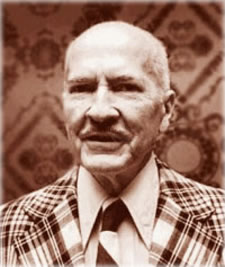
Novelists write books because they have ideas and characters and stories burning in their minds. The writers you mention were fortunate enough to reach wide audiences and they affect peoples’ lives to this day. The boundaries they were pushing were evolutionary, and had nothing to do with a profit motive. To the contrary — we write because we have something to say, and we take a risk saying it.
Le Guin was one of the writers who introduced us to the idea that gender is optional; we can choose our gender from moment to moment. Heinlein introduced us to the idea that we can love and be loved by as many people as we want, and that we’re only limited by our beliefs about ourselves. These ideas have helped many people evolve their lives, and sparked many other thinkers into action. For example, Heinlein helped launch the polyamory movement, which is a worldwide trend toward people having open, honest, nonmonogamous relationships — and just about every polyamorous person understands who Heinlein is.
In their day, these books were as accessible to peoples’ minds as video games are today — and that is incredible.
I wasn’t there when Grand Theft Auto was created, but the name tells you a lot. Okay, you get to pretend you’re a criminal roaming the streets of a city. And then?
Why is this generation so obsessed with vampires and zombies? And from where do the roots of this stem?
Let’s take these symbols one at a time. Both deal with the state of being undead. Undead is the opposite of alive, but not really dead. I think they reflect how many people are terrified that this is how we’re living our lives.
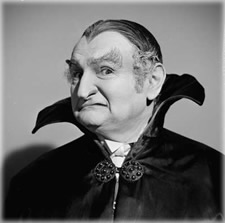
Vampires flirt with the most seductive human experiences, yet for the most part they’re celibate. They represent powerful forces operating under the psyche and yet it cannot fulfill our real human need for contact. The vampire metaphor is that the mortal gives up his or her life force to the immortal; it’s an act of total submission. This description reminds me of immortal corporations vamping off of submissive, mortal humans. In many, many ways we are confronted with this kind of energy theft at this time in history.
In vampires we also have the image of compulsion, of doing what we need to do because we have no way to avoid it. In an era when we are met with so much seduction, and so much compulsive behavior, and so many addictive substances, and when we have so many opportunities to withhold or be withheld from, I think vampire stories give us a way to process our responses.
Zombies are another story. I think they’re a reflection of our fear that we’re going unconscious; that we are living the lives of the undead; of the totally unconscious, who can neither wake up or die properly. To me they’re our symbol of humans living automatically, or as slaves of our technology. And hey, if we do it because everyone’s doing it, that allegedly absolves us of any responsibility for our own lives.
Where in pop culture do you think the boundaries are being pushed?
I’m not sure it’s ever been the job of pop culture to push boundaries, but sometimes it happens. We live in a time when it’s difficult to push boundaries because we either don’t know where they are, or because we’re so caught up in our own heads that the least movement into physical experience is pushing boundaries. Anything we do that involves going beyond a fear is pushing a boundary. Laughter is a psychological sign that we’re abandoning fear; that we feel safe. Comedians help provide that safe environment and we are in a golden age of comedy and satire right now.

I’m a big fan of The Onion because they have no sacred cows, and at the same time they’re like a divining oracle of the insanity of our moment. It’s one of the few places you can read something that’s absolutely honest and not dictated by what people might think. You can laugh at yourself. Their three-minute newscast videos are just beyond brilliant. Yet they can push boundaries because they have them: the writing is impeccable, they’re funny nearly all the time, and most of all, they’re relevant.
Rachel Maddow on MSNBC is pushing a boundary of proving that television can be honest and intelligent. If you’ve seen her you know she’s funny and that she doesn’t take herself too seriously. The intelligent part is crucial in a world where the main boundary we run into is how stupid people are presumed to be, or rather, presume themselves to be — the “I’m a zombie” factor. She entices her viewers to take on challenging issues, and is basically living proof that it’s cool to be intelligent; not a geek, but sensitive to the many dimensions of an issue. She pushes other broadcasters to be real and to take chances. And she’s a dearly needed example of a woman in her power, who stands on the strength of her own voice and her own ideas. I don’t think you’ll ever see her pimping the Palm Pre.
There’s some great stuff going on at Comedy Central; almost enough has been said about Colbert and Stewart, but as a journalist I will say that I look to these guys as some of the most effective news analysts out there. Danny Tosh is one of the unsung geniuses on Comedy Central at the moment. Tosh.o is a program about how absurd the Internet is, or rather, how absurd people are and what you can find of that madness on the Internet. He’s willing to let people be as mindless as they are; he’s like a dream muse for the online world.
Most of where boundaries are being pushed, you don’t hear about yet. The culture either isn’t open enough, or where it’s open it’s a special challenge to get traction. I think with pushing boundaries, we need to not be pushed but rather guide ourselves to be more daring, to take chances, and to use technology as what it is: a raft to another shore.
Weekly Horoscope for Friday, August 20, 2010, #828 – BY ERIC FRANCIS
Dear Fellow Traveler:
It is better to have a slow start than many false starts. Therefore, proceed with care and awareness through the 12th when Mercury stations direct, and even then, don’t trust everything you see and hear. As for trusting your feelings, I would say yes — as long as those feelings consist of something besides hope or fear. Complicated is different than complex, and what you need now is a multi-faceted approach to exploring the potentials in your life. Collect the facts, check them over a few times, and see what they add up to. This will provide some grounding for your thought process. Yet two powerful conjunctions that occur around the time of the equinox — Jupiter conjunct Uranus in Pisces, and Chiron conjunct Neptune in Aquarius — both say essentially the same thing: trust your intuition, and trust your ideas.
Yours & truly,
![]()
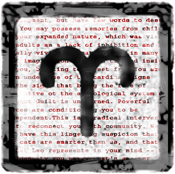
I suggest you avoid competitive situations, and do your best to make sure that you purge a spirit of competition from your intimate encounters. I would not need to say this if the playing of games, and putting people through the paces, were not such a common experience where erotic and emotional encounters are concerned. But playing at love as if it were a game of Top Chef will be the single fastest way to eliminate any sense of intimacy in your relationships. It’s also likely to be a cover story for a sense of disconnect that you may be feeling with someone you want to be close to. And this invokes the deeper and perhaps more challenging part of human contact, which is developing your connection to yourself as you explore the journey of being close to others.
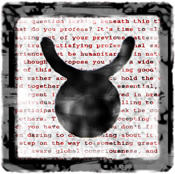
You are close to a breakthrough in a relationship that is dear to your heart, your soul and your libido. Yet you may be wondering why you are so involved, and why it seems like you have so little influence over the course of events. I suggest rather than getting caught up in the mystery, that you think of your situation as walking down the street, or on a path. You cannot fly, but you can choose where to put your feet. You can walk slower and see the scenery and shop windows. You can walk quicker and move toward a certain location. You have options. It is true that you may feel like you’re in too deep, but that’s not necessarily true, and what you have is more pleasurable and meaningful than something that you could describe as ‘too shallow’. Your destination is water; when you get there, remember to swim.

Creative process often goes in fits and starts. There are days when you get everything done, and days when between the electric meter reading, your mom or your kid calling you three times and the monumental task of making lunch, you get very little done. The important thing is that you persist from day to day. More meaningful than that, go deeper, reach for the source of creativity rather than the results, and do your best to let appearances drop away. I suggest you be undeterred by delays, and return to your creative objective, whatever it may be, on a daily basis. Bear in mind, as well, that there is no creative process that is disconnected from a healing process. I suggest you keep both in your thoughts and your feelings, touching base with the deeper sense of history that you’re working to resolve, as you simultaneously create this next phase of your existence.
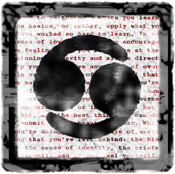
You may feel that you have more in the way of ideas than you have the tangible means to express them. That may be true for the moment, but it’s not true forever; in fact, it will hardly be true for long. Right now I suggest you appreciate and explore the abundance of your creativity. You also have something else going on, which is an odd angle of analysis, a particular slant in the way you see things that has the ability to reveal both hidden problems and, correspondingly, hidden solutions. This particular mental gift is something innate in you, but it’s particularly brilliant now. At times it’s thinly veiled by frustration. Don’t fall for that: anytime you sense that you are limited, or that you can’t see the issue, look closely, turn the paper upside down, or rearrange the steps in a process.
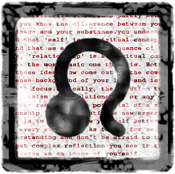
You have something to say, so I suggest you say it. You may be terrified to, but this is the time to take some new, if tentative, steps in the art of self-expression. I am aware the depth of commitment involved in making any statement. I am aware that saying anything incurs the risk of being wrong. These are two things that you would do very well to face boldly. Trust your balanced perspective. Have faith that you see more to the picture than most people do, and that you know what stands on the other side. That is the perspective from which to speak — to reveal the hidden world behind the façade of existence. In doing this you would, of course, be revealing something beyond your own façade. You would be allowing a new depth of vulnerability. These will be steps toward freedom.
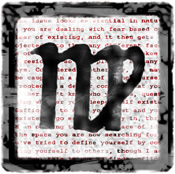
Wake up every day and wonder who you are. Ask the question. To do so would be to assume that you don’t know the answer, and that is precisely the point. You spend too much time convincing yourself that you are who you are, rather than asking boldly and letting the question stand. You’re likely to see that you put emphasis on being the same person from day to day or honoring your past goals. If you look at this directly, you may notice just how many have nothing to do with what you want now. So why are you still invested? You may not be; you may be falling prey to a quality of the human mind that is terrified that it doesn’t exist, or doesn’t know for sure. Cast that off. Embrace uncertainty and you will find your power.
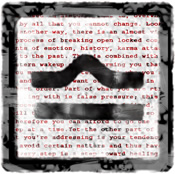
You’re at a crucial tipping point in declaring your independence from your parents. I say that whether you’re 15 or 51; whether you live at home, or whether you’ve lived in China for the past 20 years. Most people aren’t truly free of their parents’ negative attachments. The most challenging situations occur when we think we’re free, but are still dragging around ‘unconscious’ feelings in the part of the mind we pretend doesn’t exist. For the next few weeks you can study the flow of events and trace backwards to what they say about your relationship to the past, to the people who once had so much authority over you, and to what you believe about authority today. To what extent do you have the freedom to structure your life? To that same extent you are free of your parents’ baggage.
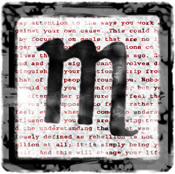
Are you rebelling against your own sexual energy? Are you maintaining a kind of purity to give you a sense of safety? Or do you simply feel alone in the world? I propose that how you feel about sex describes how you feel about your whole life. You can in fact make a detailed description of your erotic existence and then read it as if you’re explaining your feelings about being on the planet. The sense of isolation you may be experiencing will help you break free of someone or something: an attitude, a relationship, an emotional pattern or a sense of being stuck. The planets are aligning in such a way that is promising you the experience of being anything but stuck, though it may seem daunting to make that first move. Gather your courage and do what it takes.
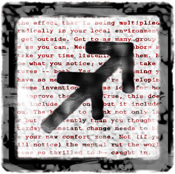
We live in a self-obsessed society that lacks self-knowledge. You are probably one of the illuminated. You have a vision, you are in contact with your creativity and you understand that there is such a thing as liberation. For you, liberation and knowledge are one, and as this autumn progresses you’re going to figure out that the only true knowledge is rooted in your emotional body. This is not true of everyone, though we would all benefit from this level of awareness. For you, it’s always true and yet this time in your life marks a special time in your growth, where you tap into the deepest inner sense of your senses and thoughts and confirm what is true by a purely emotional response. Some call this a gut response, and I would agree, except to say that it goes deeper: right down to your cells.
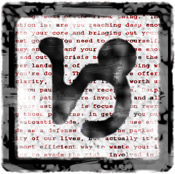
You have been through so much. You might want to rest, but now is your moment to shine. Long rehearsals always precede opening night. You need a few good nights sleep, a few good meals, and then it’s time to take on the world. Your goals have been long in coming to fruition, and you may have given up on some. I suggest you do nothing of the kind; your moment is just arriving. Events of the past few months may have come with hard lessons and seemingly impossible challenges. You may have spent so much time on deep inner work that you forgot about your desire to make your way in the world. Now is the time to remember. People around you are waiting for your ideas, your clarity, and your blessing. You’re not alone, but you are the one who must bring the initiative.
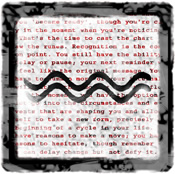
You seem to be experimenting with different approaches to having faith in yourself. I can tell you right away that holding yourself to a standard of perfection is not one that will work; an ongoing critique will not be so helpful; trying to live up to the expectations of others will not offer you much. What is likely to help is utter sincerity. Be aware of when you are putting up an appearance of any kind. More to the point, notice why you would conceal something behind a façade. While these things do not exactly represent faith in yourself, at least they won’t get in the way; they will help remove obstacles rather than add them. When the strong rays of faith arrive, they are likely to feel like an inner sense of devotion to a long-term vision. You may have your doubts, and they don’t matter.
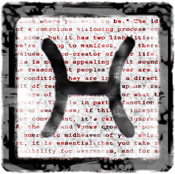
Though you may not understand why, over the net few weeks, you begin to make progress in places that it seemed impossible. There are many factors at work. Sticking to your basic requirements for what constitutes worthwhile, authentic or sincere have helped, and they will continue to help. Your willingness to be flexible has also contributed — this is called having standards and also the willingness to assess them continually. Yet there is one thing that is providing benefit above all the other factors, which is your innate sense of what is right for you. Trust that you can see through the fog; you can see to the quick of any issue, and you know how to put that information to work. Of course, this doesn’t always make you the flavor of the month, but you quit that assignment years ago.



